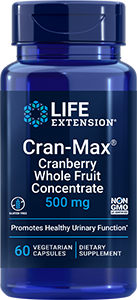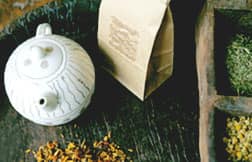 | June 7, 2011 | Tea mechanism in preventing autoimmune disease uncovered | | In an article published online on May 20, 2011 in the journal Immunology Letters, researchers at Oregon State University's Linus Pauling Institute report a mechanism for green tea in suppressing autoimmune disease: an imbalance of the immune system which results in the body attacking itself. Autoimmune diseases range from childhood allergies to fatal diseases including amyotrophic lateral sclerosis (ALS). Although treatment with pharmaceutical agents can help regulate immune function in autoimmune disease, the drugs are frequently associated with toxicity. Oregon State University Department of Nutrition and Exercise Sciences associate professor Emily Ho and her associates studied the effect of the green tea polyphenol known as epigallocatechin gallate (EGCG) in cell cultures and in mice. They found that EGCG increased the amount of regulatory T cells (which help dampen the immune system), whose function is regulated by processes that involve transcription factors and DNA methylation. “EGCG may have health benefits through an epigenetic mechanism, meaning we aren’t changing the underlying DNA codes, but just influencing what gets expressed, what cells get turned on,” Dr Ho elaborated. “And we may be able to do this with a simple, whole-food approach.” “Epigenetic regulation can be potentially exploited in generating suppressive regulatory T cells for therapeutic purposes, and is of significant clinical importance for the suppression of autoimmune diseases,” the authors note. Dr Ho concluded that EGCG "appears to be a natural, plant-derived compound that can affect the number of regulatory T cells, and in the process improve immune function. When fully understood, this could provide an easy and safe way to help control autoimmune problems and address various diseases.” | |  |
| Autoimmune diseases are characterized by the body's immune responses being directed against its own tissues, causing prolonged inflammation and subsequent tissue destruction. Autoimmune disorders can cause immune-responsive cells to attack the linings of the joints--resulting in rheumatoid arthritis--or trigger immune cells to attack the insulin-producing islet cells of the pancreas leading to insulin-dependent diabetes. Oxidative stress plays a role in autoimmune diseases. It can be compared to a piece of metal rusting and results from the action of damaging molecules known as free radicals that are a natural byproduct of the body's metabolism. The electrically charged free radicals attack healthy cells, causing them to lose their structure and function and eventually destroying them. Free radicals are not only produced by our bodies, but they are also ingested from toxins and pollution in the air we breathe. Antioxidants are a broad group of compounds that destroy or neutralize free radicals in the body, thereby protecting against oxidative damage to cells caused by the normal aging process or daily exposure to pollutants and toxic substances. Antioxidants are found naturally in healthy food, especially fruits and vegetables. The most effective of the antioxidants include vitamin C, vitamin E, green tea extract, beta-carotene, grape seed-skin extract, coenzyme Q10 (CoQ10), and selenium. - Vitamin C may be the most important water-soluble antioxidant, having an ability to scavenge both reactive oxygen and nitrogen radicals. In controlled studies, vitamin C has demonstrated antiatherogenic, anticarcinogenic, antihistaminic, and immunomodulatory benefits.
- Vitamin E is a fat-soluble, essential nutrient for humans. Increased risk for coronary artery disease, Alzheimer's disease, and cancer has been reported in regard to vitamin E deficiency.
- Green tea belongs to the flavonoid family. Green tea catechins are potent free radical scavengers and have also demonstrated anticarcinogenic, anti-inflammatory, antiatherogenic, and antimicrobial activity.
- Beta-carotene is a dietary precursor to vitamin A. Beta-carotene has demonstrated immunomodulatory effects in male nonsmokers and has demonstrated increased lymphocyte counts in healthy male smokers. Beta-carotene's antioxidant activity may prevent oxidative damage to DNA and inhibit lipid peroxidation.
|
|  |   | Protecting against factors known to damage the gastric lining is essential to ensuring optimal stomach health. CarnoSoothe with PicroProtect™ combines four remarkable nutrient compounds that naturally modulate the growth and damaging effects of H. pylori while protecting the health of the gastric lining. Two capsules of CarnoSoothe are recommended daily and supply 50 milligrams of zinc L-carnosine. Scientific evidence indicates this novel chelated compound of zinc and L-carnosine works synergistically to support delicate stomach tissue. Zinc-carnosine developed in Japan as medicine has been shown to help with stomach inflammation and the effects of cytokine release associated with H. pylori. Two capsules of CarnoSoothe also supply 500 milligrams of a standardized deglycyrrhizinated licorice (DGL) extract. | | | Cran-Max® Cranberry Extract   | Cranberries have been known for decades to promote a healthy urinary tract. Clinical research demonstrates that cranberries’ proanthocyanidins are powerful antioxidants that can reduce oxidative stress. A double-blind comparison study confirms that Cran-Max® helps support a healthy urinary tract. Each Life Extension Cran-Max® capsule contains 500 mg of cranberry concentrate to promote urinary tract health. Each capsule of Cran-Max® contains powerful polyphenols, organic acids, and antioxidants, providing the same benefits as drinking cranberry juice cocktail, but without the calories. An advantage of Life Extension’s Cran-Max® is that it only requires once a day dosing! | | | |  | Life Extension Update | What's Hot | Life Extension® Magazine | |














